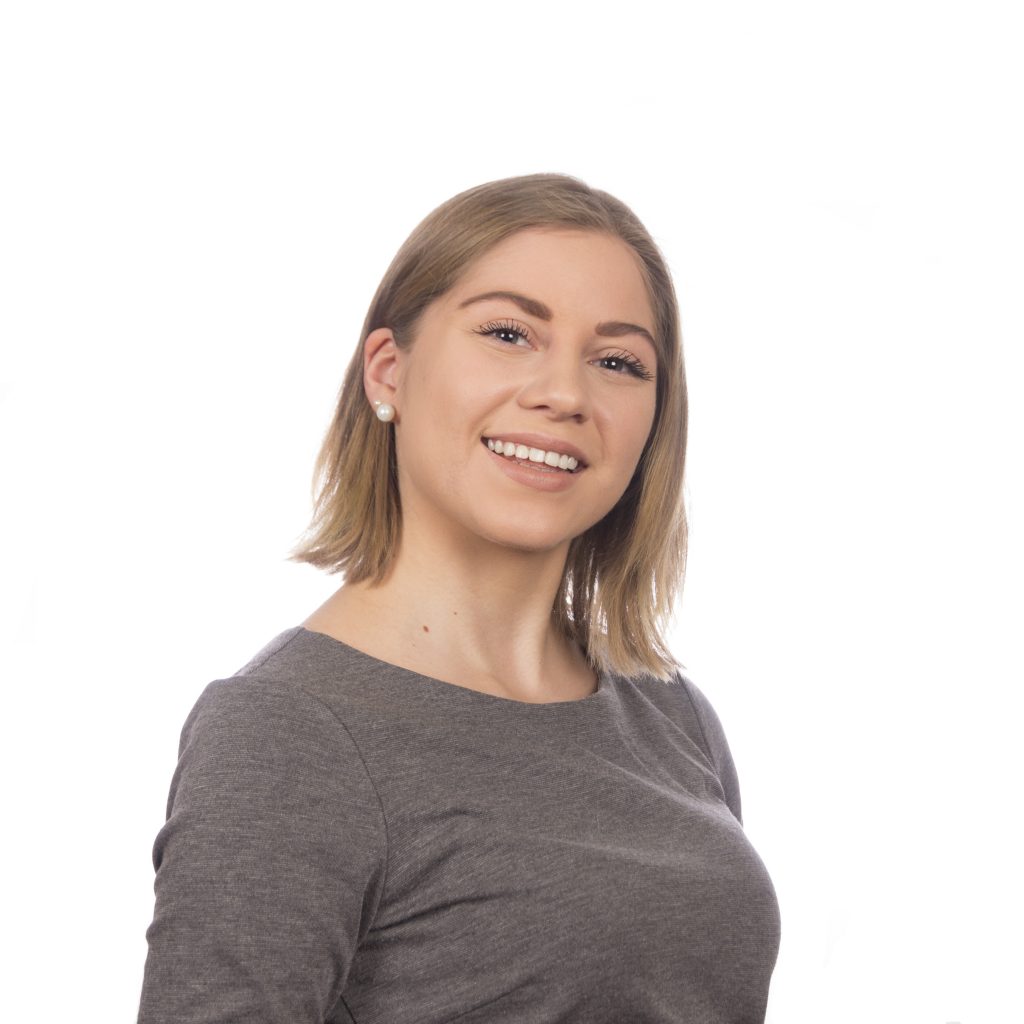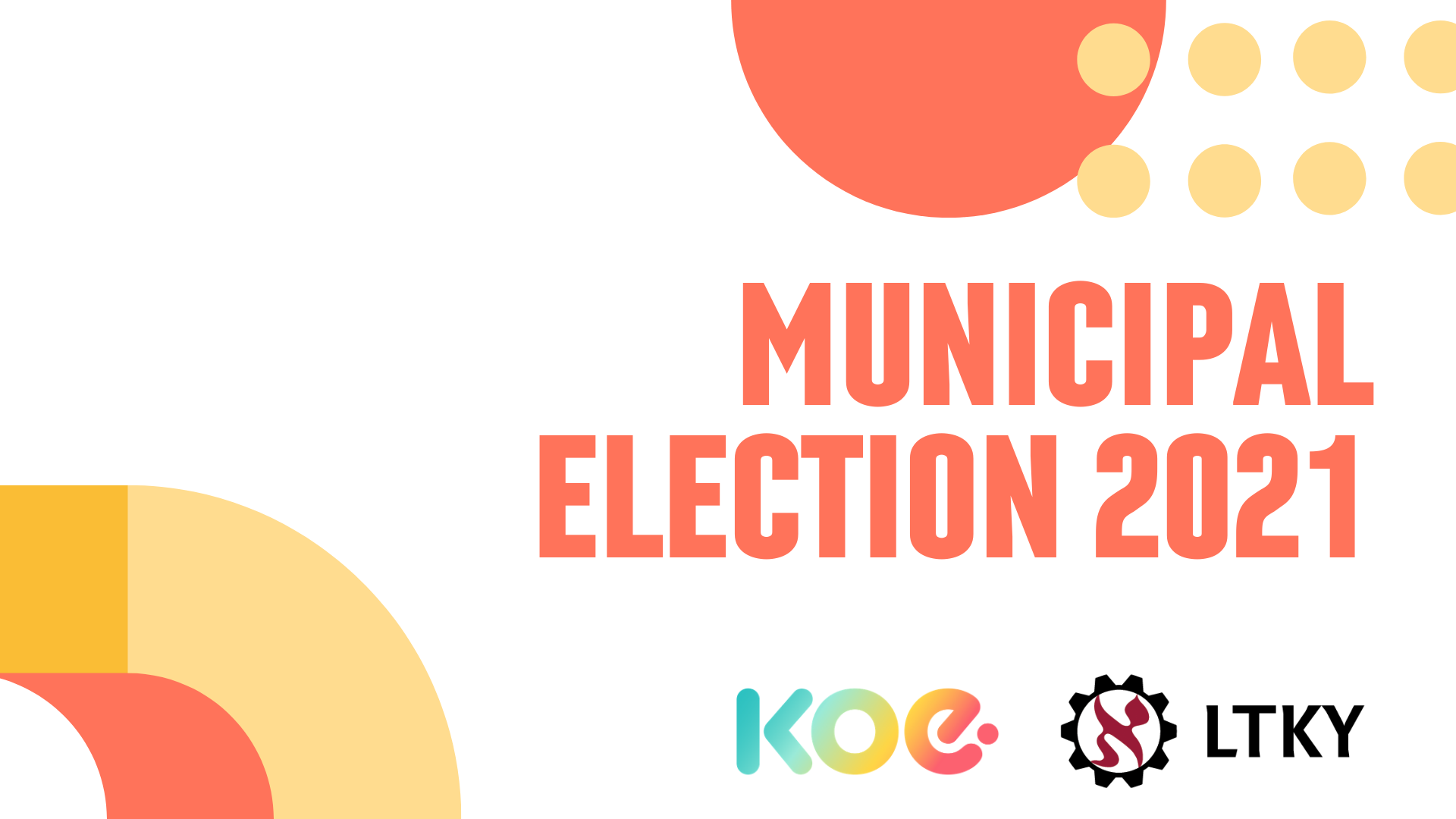Municipal elections are coming in the spring of 2021!
In honor of the elections, KOE and LTKY joined forces and wrote together the municipal political plans for Lahti and Lappeenranta! The plans briefly describe the development targets that KOE and LTKY are working together to make a special impact on. You can find the plans at the end of this text as attachments.
In addition to the municipal political plans, KOE and LTKY organized a municipal election webinar for students and parties on November 17th. The municipal election questions and answers on this blog are compiled based on a webinar.
A lot of interesting stuff is coming for our students – for those who might consider being candidates in the elections as well as for those students who still think if they should even vote. Stay tuned!
Municipal elections 2021 Q&A
How long does it take to be a municipal councilor?
Acting as a delegate takes time on a weekly basis, even if there are no actual meetings. However, you can have a very big influence on how much time you spend – for example, whether you take on more trust from the boards, whether you are actively involved in writing initiatives, whether you read the agendas carefully, and so on.
So in addition to meetings, be prepared to spend a few hours a week getting to know things, preparing for meetings, and discussing. Learning tasks at the beginning can take more time, but with experience you will learn to identify the essentials of the agendas, for example. Sharing responsibilities with other delegates is important, as not everyone has to look at every issue within the council group.
The dates of the Council and boards meetings must be known in good time and they are usually always at a certain time according to a recurring cycle each month, which makes it easier to adapt them to your own schedules. The beginning of the month is usually a busier time, especially in the evenings. An average of 3-4 meetings per month.
What is “a party book” in practice and how do you get it?
“Party book” = party membership. For parties, an electronic registration form, you should check out the parties’ websites!
What should you do if you are not sure which party would be most suitable for you?
Feel free to contact the representatives of different parties in your area – call, send a message. I actually went to talk. Google, websites. Getting to know the goals and values of the parties. In general, it is recommended to contact the parties.
Please note that if you want to stand as an impartial candidate, it is also possible!
What is a party office? Where can I find it and what kind of help can I get there?
Each party has its own party office in the capital. Contact information can be found on the parties’ websites. Several parties have district-level party offices and local offices with people at work and responding to contacts.
What is it like to work as a municipal councilor? Has the work met expectations?
It’s interesting. There are also moments when you think about “Why I got involved in this,” because the work takes a long time and things don’t happen in an instant. Above all, working as a municipal councilor is interesting. Rich cooperation across party lines, because a better future is achieved by working together.
The work has met expectations and even delivered more than expected. Long-term work requires a lot, but working on councils and boards has been an instructive time. Has learned to appreciate the importance of networks and cooperation in municipal policy.
Is there group discipline or can you influence voting decisions yourself? How much can be affected and how?
Vihreät will discuss issues together, taking into account the values, everyone will be able to vote according to their own opinion, but it is hoped that the other group will be aware if someone is leaving an dissenting initiative, etc.
Kokoomus discusses issues, finding a common perspective and line is important, which is why grouping is important. Kokoomus Lappeenranta does not have group discipline, may vote in its own way, but won’t discuss in advance if no common line can be found. There is a wealth that one can also disagree and discuss things within a group.
What is important in politics is that everyone can have their own opinion. In the SDP group, it is important to have a debate and to express one’s opinion. When going through big things, you can also form a group opinion, on which you may disagree, but it would be fair to tell you about this in advance. However, seeking a common view is not problematic → making compromises in politics plays a key role.
Keskusta has similar policies. Before running for office, the Commissioner him/herself made sure that he/she could certainly disagree. Disagreement also enriches the group, and disagreement may remain in the council.
Are young delegates treated in the same way as more experienced ones?
Lahti
Young people were treated in exactly the same way. In the last election, a lot of new young delegates came to the Lahti Council and everyone was treated the same. In the early part of the season, individual situations were girled, but these were addressed and this was left out. Young delegates are equally taken seriously.
Lappeenranta
Young delegates warmly received. More experienced politicians are tricky. Experienced politicians thought it was great to have young people come along. Receiving a person does not depend on age, but rather on attitude. Enthusiastic representatives with an open mind, “Not that age, but that person”. A representative of Lappeenranta youth council will also be present at the council meetings and his/her speeches will be heard with a clear ear. We want to hear young people and young people’s perspectives. He/she him/herself did not experience any form of discrimination or ill-treatment, even though he/she was the youngest. Young people want to be listened to and heard. Young people are welcome. I wish that really young students in their twenties would come along. Fortunately, Nuva is active and they are being listened to.
How does a young commissioner reach out to other young people and discuss politics? Where do the encounters take place and how?
Youth political organizations and action groups help. Social media. Activities aimed at young people, through encounters and discussions. The parties have local youth organizations that you can connect with on a low threshold!
What is the most important student issue that the city council could promote?
SDP: There are many important things in municipal policy. Raising students actively in municipal decision-making and inviting them to discussions → students’ voices → the city’s holding power after studies.
Vasemmistoliitto: In the Municipal political plan are many good things and many of these things are already progressing in Lappeenranta. In the city, an inclusion and interaction program that mentions students is mentioned separately → hopefully the dialogue will be intensified. Free prevention already in the municipal election program → this has been tried before, but no progress. Free public transport balance to make exploring the city easier → a simple thing to implement. In the construction industry itself and now big projects from the perspective of student housing.
Kokoomus: At the far end, good co-operation has been achieved and Lahti has become a university city. There is still a lot of work to be done with public transport, housing and culture → more dialogue with students → young candidates are needed.
VIhreät: Attention to the provision of Lappeenranta Finnish language courses → support for immigrants in employment. Improving employment opportunities for international students.
Keskusta: Lappeenranta mirroring the city’s strategy of “students into the city”. Clear goals with which the city wants to improve student well-being and inclusion (more student events in the downtown area, etc.). More common tables → closer cooperation.
How do you take the students’ municipal policy program into account in your work and party program?
Keskusta: This week, the group meeting will highlight the experiences of a cross-party debate that could take place even more. The secretary will attach it to the forthcoming meeting of the council group and review the document. Talking forward.
SDP: Lots of things you can warmly agree on. In fact, a lot to do with the election program → according to things from the cup.
Kokoomus: Involved in making the program. When you approached through the chairs, the Municipal political plan has already gone to just the right address. Current affairs nicely featured. Young people can join the team, even if they do not run as a candidate. For example, in the development of public transport, the voice of students and young people is important.
Vasemmistoliitto: As a member of the Party Board, involved in making the party program → from the point of view the program was reviewed and seen what was done and what can be done. Dialogue is the greatest gift → clarity on what is hoped to be promoted.
Vihreät: Many of the issues are already on the agenda and important to the group – It is important for the success of Lahti that students feel comfortable and able to cope.
Kokoomus: In Lappeenranta, it is important to make students’ voices heard. We want to be a university town where we want to stay after my studies. Municipal political plan visible and forward. Take yourself to the election working group and discuss with the chairman of the Lappeenranta Kokoomus Youth and pass the program on to him.
How did you implement your campaign? Where did you get help for your campaign? Should there always be a lot of resources available?
Linda, Kokoomus: Kokoomus young people, for example, support young candidates with a material package worth up to a thousand resignations, so there is no need to have big start-up capital for themselves. For example, with candidate pictures support and payment of the candidate fee. Peer support. Self-executed campaigning on a small budget. Now, of course, under the influence of the corona, campaigning is more some. You can start campaigning on a small scale.
Nelli, Vihreät: My own campaign with a small budget. Vihreät young people give peer support and advice to those who are willing. My own campaign was around 200e and in retrospect the amount was even too high, for example, the flashes are not very effective especially for reaching young people.
Clarisse, Vihreät: A lot of support from Vihreät youth, the union takes care of the candidate photos and the young candidates got a free paid sake campaign. Self-utilized something. Budget 50e for some marketing and about 20e for other material.
Sanna, SDP: Becoming a candidate is not a financial issue – the most important thing is to do your own work well, people appreciate the prospects of your own activity through actions. Through the party, a certain visibility is secured for everyone.
What is the schedule of municipal elections? When do you have to register as a candidate at the latest?
- Date of collection of information from the register of voting rights (in which municipality is entitled to vote): 26.2.2021
- Date of submission of applications: 9.3.2021
- Confirmation of the list of candidates: 18.3.2021
- Domestic advance voting: 7. – 13.4.2021
- Advance voting abroad: 7-10.4.2021
- Election day: 18.4.2021
- Confirmation of results: 21.4.2021
- The councils will take up their duties on 1.6.2021
- Read more: Municipal Elections

Anniina Pokki
The Author is a member of LTKY’s board.
The article was written in co-operation with Emma Kokkonen from KOE.

